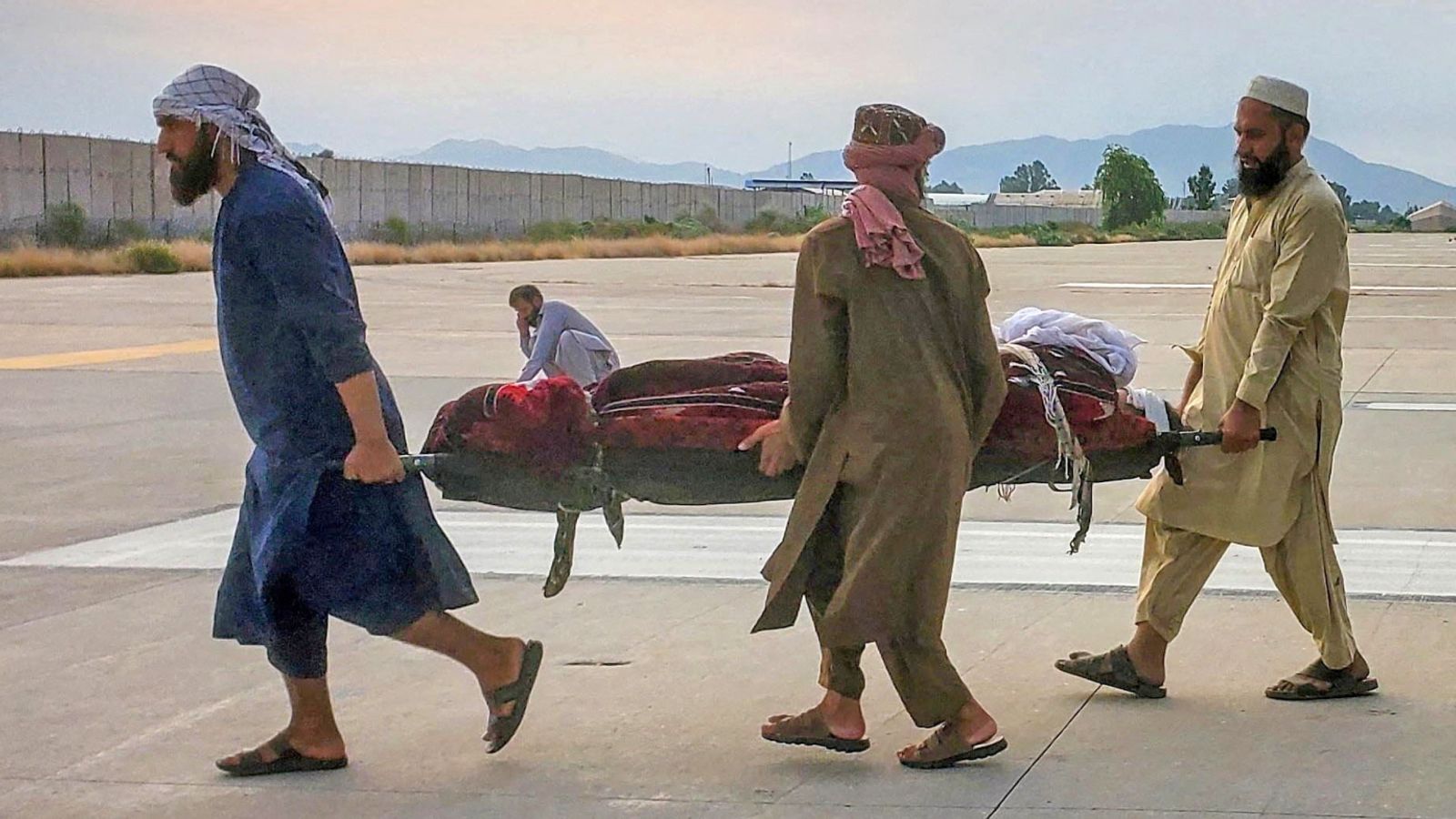PORT-AU-PRINCE, Haiti -- The massive crowd that would gather once a year at a revered waterfall in central Haiti where the faithful would splash in its sacred waters and rub their bodies with aromatic leaves was not there on Wednesday.
Powerful gangs in March attacked the town of Saut-d’Eau, whose 100-foot-long waterfall had for decades drawn thousands of Vodou and Christian faithful alike.
The town remains under gang control, preventing thousands from participating in the traditional annual pilgrimage meant to honor the Virgin Mary of Mount Carmel, closely associated with the Vodou goddess of Erzulie.
“Not going to Saut-d’Eau is terrible,” said Ti-Marck Ladouce. “That water is so fresh it just washes off all the evilness around you.”
Instead, Ladouce joined several thousand people who scrambled up a steep hill in a rural part of Haiti’s capital, Port-au-Prince, on Wednesday to honor Erzulie and the Virgin Mary of Mount Carmel at a small church that served as a substitute for the waterfall.
Like many, Ladouce thanked the Virgin Mary for keeping him and his family alive amid a surge of gang violence that has left at least 4,864 people dead from October to the end of June across Haiti, with hundreds of others kidnapped, raped and trafficked.
“People are praying to be saved,” he said.
Daniel Jean-Marcel opened his arms, closed his eyes and turned toward the sky as people around him lit candles, clutched rosaries and tried to push their way into the small church that could not hold the crowd gathered around it.
Jean-Marcel said he was giving thanks “for the grace of being able to continue living in Port-au-Prince,” where gang violence has displaced more than 1.3 million people in recent years.
“There is nowhere for us to go,” he said, adding that he and his family would remain in Haiti even as people continue to flee the ravaged country despite an immigration crackdown by the administration of U.S. President Donald Trump.
On Wednesday, U.S. authorities deported more than 100 Haitians to their homeland on the latest such flight.
Jacques Plédé, 87, was among those dressed in all white who gathered to give thanks in Port-au-Prince, of which 85% is now controlled by gangs.
He recalled helping build the small church but never thought it would serve as a substitute for the Saut-d’Eau waterfall.
“It’s very disgraceful for the country that the gangs are taking over one of the nicest waterfalls where people go to pray privately,” he said. “Life is not over. One day, if I’m still alive, I’ll make it back to Saut-d’Eau.”
On the morning of March 31, the Canaan gang led by a man known as “Jeff” attacked Saut-d’Eau. Police and a self-defense group repelled the attack, but the gang returned in early April with more than 500 men, prompting residents and authorities to flee, according to a new report from the U.N. human rights office.
Angry over the ongoing violence and what the United Nations described as “weak responses from authorities,” residents of Saut-d’Eau and other nearby communities in May and June took over a hydroelectric plant in protest, causing widespread power outages in Haiti’s capital and its central region.
On Wednesday, videos posted on social media showed Jeff Larose, leader of the Canaan gang, standing in the large church of Saut-d’Eau that traditionally hosted the annual Mass amid the three-day pilgrimage. The church was built under a presidential order after rumors began circulating in the mid-1800s that a local farmer had seen the Virgin Mary in a palm tree there.
Next to Larose stood Joseph Wilson, who goes by “Lanmo Sanjou” and is the leader of the 400 Mawozo gang, and Jimmy Chérizier, best known as “Barbecue" and one of the leaders of a powerful gang federation known as “ Viv Ansanm,” or “Living Together.”
The video showed them distributing money to some residents who gathered with their arms outstretched.
“They used to stop us from coming to Mount Carmel,” Barbecue said. “We are at the foot of our mother now.”
At one point, Lanmo Sanjou looked at the camera and said the Virgin Mary of Mount Carmel would give them the opportunity to perform more miracles.
The sounds of laughter and gurgling water were absent on Wednesday at the church in Haiti's chaotic capital where the substitute pilgrimage was underway.
Hugens Jean, 40, recalled how he and his family in previous years would visit Saut-d’Eau, where they would wash themselves in the waters and cook meals in the nearby woods.
“Today is a very special day,” he said. “I come here to pray for deliverance for my family and for the country that’s in the hands of gangs. One day, we need to be free from these systematic attacks. We don’t know who’s going to live today or who’s going to die tomorrow.”
Joane Durosier, a 60-year-old Vodou priestess known as a “mambo,” shared a similar lament.
Dressed in white with a rosary in hand, Durosier said she was praying for herself and her followers.
“A lot of people are suffering,” she said. “In a country like Haiti, everybody needs protection.”
___
Coto reported from San Juan, Puerto Rico.

 1 month ago
16
1 month ago
16










 English (US) ·
English (US) ·